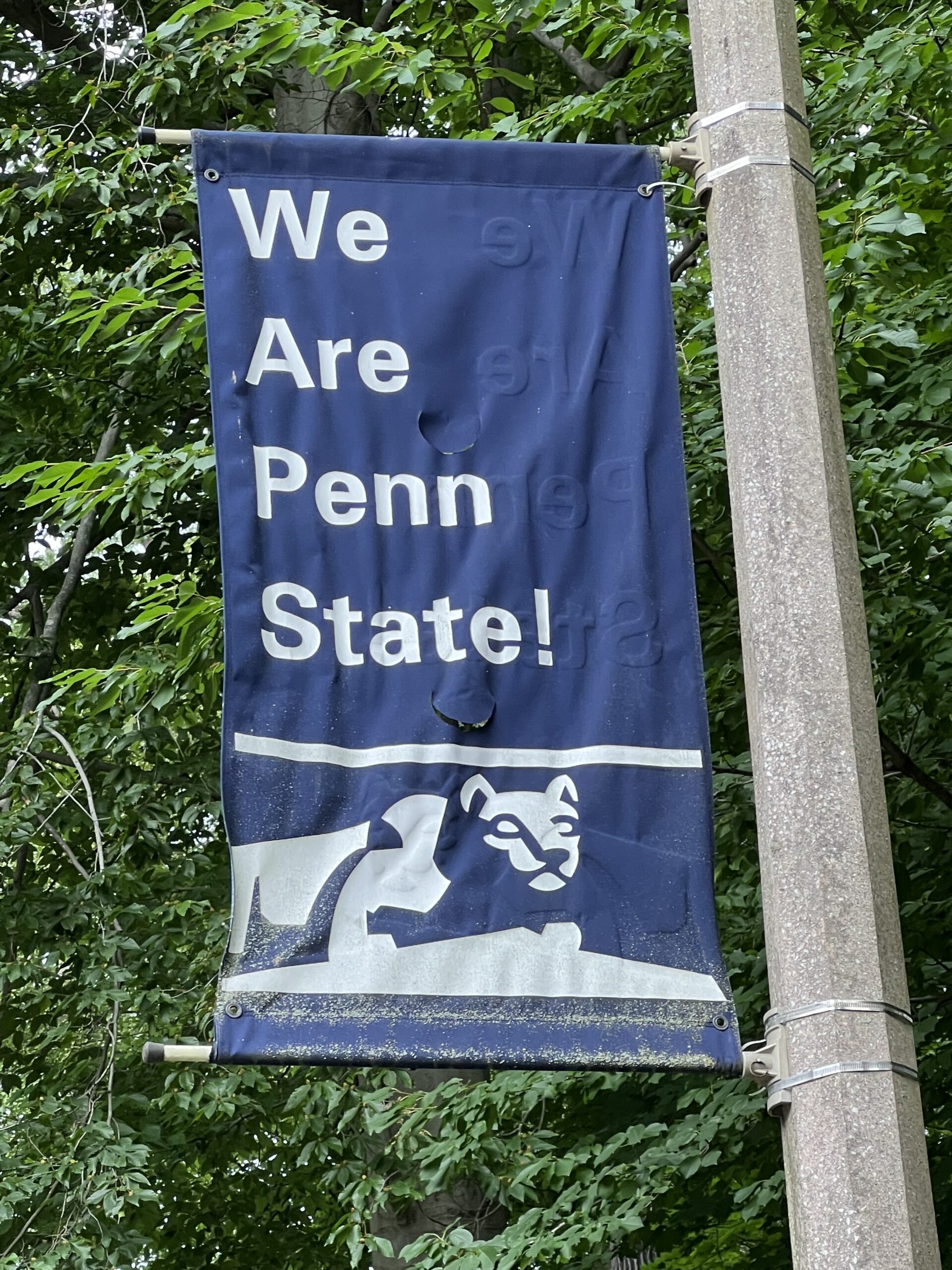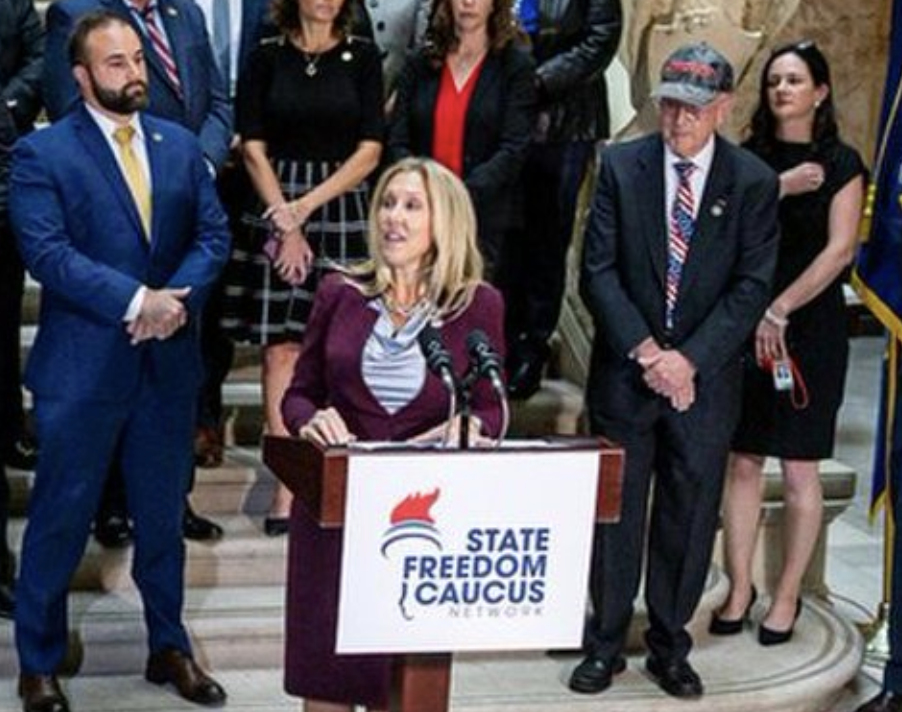Penn State Abington Sued for Discrimination Against White Professor

Zack De Piero started his dream job as an English and writing professor at Penn State Abington in 2018. But now he says it’s become a nightmare of racial harassment, discrimination and violations of his First Amendment rights.
According to a lawsuit he recently filed in federal court, De Piero claims he was required to watch racially-biased videos, including “White Teachers Are a Problem.” He was also told he had to hold his breath until it hurt so he could feel what it’s like to suffer, and he was told the goal of the training was to “assure that all students see that White supremacy manifests itself in language and writing pedagogy,” the suit said.
De Piero complained to his supervisors to no avail, filed reports about the harassment with the Pennsylvania Human Relations Commission, and finally resigned in August 2021.
De Piero, 40, is the son of first-generation Italian immigrants. He taught in inner-city schools in Philadelphia, earned a master’s degree from Temple, then a Ph.D. in education from the University of California Santa Barbara before starting as an assistant professor of English and writing at Penn State Abington.

Zack De Piero
De Piero told DVJournal he has a state-mandated obligation to report workplace harassment, including that he was harassed.
“Apparently, it doesn’t work that way,” De Piero said. “Apparently, they like to be selective about who is and is not allowed to be discriminated against.”
De Piero noted that Penn State receives taxpayer funding.
“They should be owning this,” he said. “They should be apologizing to students, apologizing to faculty, to Penn State alumni. I don’t know why they aren’t doing that. It makes no sense to me.”
When De Piero was first hired, his supervisor expressed surprise that he was not registered to vote as a Democrat but as an independent.
“They peddled and enforced race-based ideology in addition to imposing other forms of political orthodoxy and race-based dogma,” the suit said.
He was told to grade students equally no matter how they performed.
“Outcomes alone, regardless of the legitimacy of methods of evaluation, mastery of subject matter or intentions, demonstrate whether a faculty member is racist or not,” the suit said. “They called this ‘social justice and ‘antiracism.’”
“They demonstrate a bigotry of low expectations and ‘do not expect Black or Hispanic students to achieve the same mastery of academic subject matter as other students and therefore insist that deficient performance must be excused.” And “accurate assessment of abilities if it happens to show disparate performance among different racial groups is therefore condemned as ‘racist,’” according to the lawsuit.
Also, “overt discrimination against students and faculty who do apply consistent standards, especially white faculty,” was imposed.
De Piero said his supervisor “emailed him and two other White faculty members to say ‘racist structures are quite real in assessment and elsewhere regardless of good intentions that teachers and scholars bring to the set-up of those structures. For me, racism is in the results if the results draw a color line.’”
Penn State pressured him to “ensure consistent grades for students across ‘color lines,’ otherwise, his actions would demonstrate racism. He would be condemned as a racist,” the suit said.
But De Piero rejected this and used an assessment methodology (that) all students, regardless of race, can achieve success if they put in timely work.
However, after George Floyd died, the antiracist training “reached a new fever pitch,” the lawsuit said.
Penn State held a video conference on racism on June 5, 2020. The Penn State trainer expressed her intention to cause Penn State’s White faculty to “feel the pain” that George Floyd endured. “Apparently, at Penn State, the only acceptable method to right historical wrongs is to visit additional ‘pain’ on other racial groups,” the suit said. De Piero and other non-minority faculty were “thus singled out, caused to experience discomfort and feel ‘the pain’ on the basis of their skin color.”
The trainer also “encouraged illegal activity, such as looting.”
“‘What we call looting, I think of as just getting what you’re due,’” the suit quotes her as saying.
The next morning another professor “hectored De Piero about ‘history and White male privilege,’ telling him that resistance to wearing masks is “‘is also more likely to be led by White males than in classrooms taught by women and people of color.’”
Later that week, Aneessah Smith, director of diversity, equity and inclusion at Penn State Abington sent an email to the entire faculty and staff instructing them that “Black and Brown people are calling on White people’ to ‘stop being afraid of your own internalized White supremacy.”
She “sent an email to all Penn State Abington faculty, staff, and administrators, instructing all Penn State employees that ‘Black and Brown people are calling on White people’ to ‘stop being afraid of your own internalized White supremacy.’ She instructed White employees to ‘stop talking’ while simultaneously directing members of the white Penn State community to ‘hold other White people accountable.’ She promoted a hostile environment on the basis of race by instructing Penn State’s White employees to ‘feel terrible,’” the suit said.
De Piero’s supervisor told the writing faculty to teach “that White supremacy exists in language itself, and therefore, that the English language itself is ‘racist’ and, furthermore, that white supremacy exists in the teaching of writing of English, and therefore writing teachers are themselves racist White supremacists’ and that ‘reverse racism isn’t racism.’ In doing so, (she) expressed her view that racism practiced against white faculty and students is legitimate,” the suit said.
Penn State did not respond to requests for comment. The Foundation Against Intolerance and Racism (FAIR) is representing De Piero, with local attorneys Michael Allen and Samantha Harris.
In addition to monetary damages as determined at trial, De Piero is seeking to have his Penn State disciplinary records expunged. De Piero lives in Bucks County with his wife and 4-year-old daughter. He’s teaching at Northampton Community College now.
Please follow DVJournal on social media: Twitter@DVJournal or Facebook.com/DelawareValleyJournal




